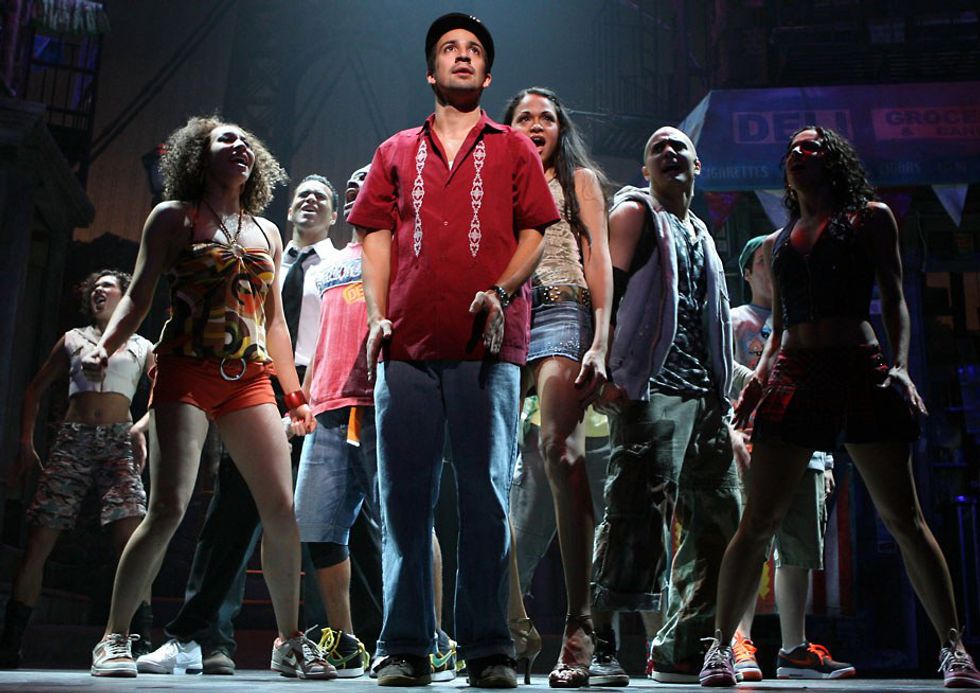It is no secret that American theatre is an art form dominated by white, educated and privileged citizens. I, a first generation Latina-American, have seen it firsthand.
The first and only time I saw professional live theatre, I was on a field trip with my “Introduction to Theatre” class. We watched Independent Shakespeare Company’s production of “The Tempest” at Griffith Park three weeks ago. We were a group almost completely made up of black and Latinx community college students from Lancaster, California — a city defined by crime and long commute times, and the most stressful city to live in California. With conversations of diversity in theatre most recently brought up by “Hamilton” and this year’s Tony Awards in mind, I spotted very few people of color in the audience that weren't part of our group. The lack of diversity in theatre amplifies the impact of today's POC works, notably Lin-Manuel Miranda’s “Hamilton” and “In the Heights.”
“In the Heights”, a Latinx-centric musical set in Washington Heights, resonates with me more than “Hamilton.” The protagonist, originally played by Miranda himself, is Usnavi, a convenience store owner from the Dominican Republic. The story explores themes not unique to but prevalent in the Latinx population: ethnic identity, the “Americanization” of a culture, financial struggles and community ties. The original 2008 Broadway musical won three Tony awards, one Grammy and was nominated for a Pulitzer Prize.
Chicago’s Porchlight Music Theatre’s upcoming production of “In the Heights” has caused controversy over Usnavi’s casting—Jack DeCesare (pictured), a white actor of Italian descent.
Criticism of the casting quickly followed its announcement mid-July. Professional actor Tommy Rivera-Vega’s Facebook post embodies the frustration of being “whitewashed” in theatre and film:
In a statement released on July 29, Porchlight Music Theatre said they did not require auditioning actors to state their ethnicity, as doing so is illegal. In this excerpt of their statement, they defend their casting choice:
“Only post hiring did we learn conclusively that not all cast members self-identify as Latinx and that the fine actor playing “Usnavi,” Jack DeCesare, is actually of Italian descent. We want to be very clear that the responsibility for hiring Jack is wholly ours, not his. This excellent young actor merely showed up for an audition. And he did his job well. Our job was to assemble a company for a work that has unique casting responsibilities. We fell short.”
This is not the only instance in which non-Latino actors have played Usnavi. White actor Sam Mackay played Usnavi in a 2014 London production, and Corbin Bleu, of Italian and Jamaican descent, occasionally replaced Lin-Manuel Miranda during the show's original Broadway run.
Tuesday night a town hall discussion/debate called “The Color Game: Whitewashing Latinx Stories” was held at the Victory Garden Biograph Theater in Chicago. Its attendants, who all agreed Latinx stories should be mainly portrayed and produced by Latinx people, focused on the limitations that prevent diverse theatre. Requiring auditioning actors to state their race/ethnicity is prohibited, so companies have to make their decisions based off an actor’s appearance. Joseph H. Yastrow, a lawyer with a speciality in employment discrimination, pointed the problem out (as featured in a recap of the event published by the Chicago Tribune): "This area is sort of a direct conflict between the rules prohibiting direct discrimination on race and the First Amendment with protection for artistic freedom and freedom of expression."
Despite increasing awareness on the issue, the performing arts still struggle to accurately represent the diversity of the United States. Theatre (the audiences, the performers, the people behind the stage) is still a mostly-white affair— the people it has always been about. The "area" Yastrow spoke of that night is partly responsible, but given the amount of POC talent (great examples can be found among this year’s Tony nominees), the “not-enough-POC-actors” excuse is not valid.
Some could argue that DeCesare's portrayal of Usnavi doesn't have to be scrutinized so much. If the audience will watch in seats from afar, so who will know he isn't Latino, right?
I do not think DeCesare's ethnic identity will negatively affect the overall production. The biggest problem of ethnically miscast roles, especially when it concerns Latinx people, is that it does nothing to help our inclusion into the performing arts. If anyone can play a Latino immigrant from the Dominican Republic, then why do we need Latinx actors? Instances like these unintentionally limit opportunities for Latinx people in the performing arts. If I wanted to be an actor, where could I find a job if my Latina facial features and experiences are not even important to the authenticity of a Latinx-centric production? This instance has shown a lack of commitment to diversity and the inclusion of the Latinx community, which is frustrating.




















